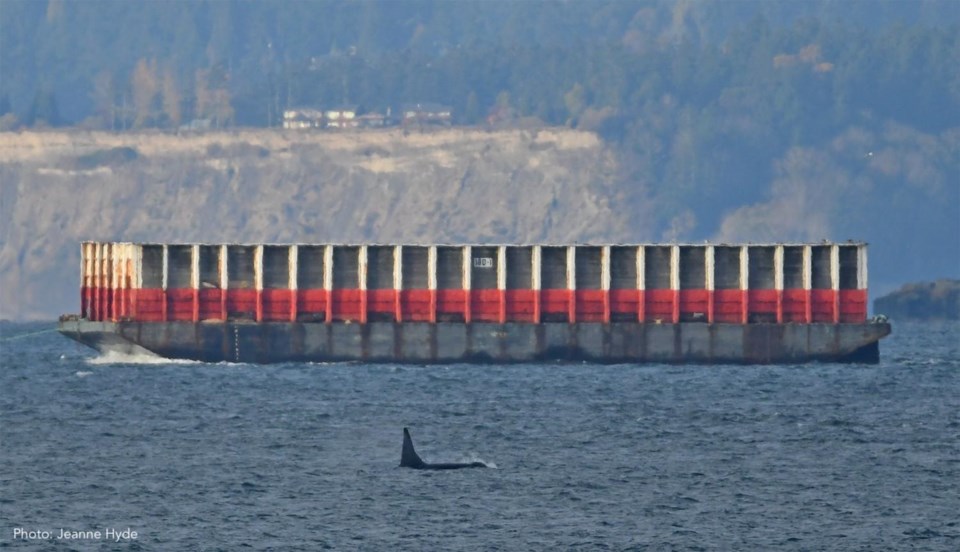Every year, thousands of commercial ships travel through the Salish Sea to deliver goods to the Port of Vancouver – and this year, a record-breaking number of them went – literally – out of their way to reduce disturbance to endangered killer whales.
As part of the Enhancing Cetacean Habitat and Observation (ECHO) Program, a collaborative regional initiative led by the Vancouver Fraser Port Authority, 86% of all large commercial ships slowed down or stayed distanced from key areas of southern resident killer whale critical habitat during the voluntary measures.
Slowing ships down or moving them farther away helps reduce underwater noise, which is one of the four key threats facing endangered killer whales, as it can disrupt their ability to hunt and find prey using echolocation.
That’s why, since 2017, the port authority-led ECHO Program has coordinated large-scale, voluntary measures encouraging ship operators to slow down or stay distanced as they travel through key areas of southern resident killer whale habitat off British Columbia’s southern coast, in collaboration with government, the marine transportation industry, Indigenous communities, and environmental groups.
Through the ECHO Program’s measures, which typically run from about June to October, when southern resident killer whale presence is highest, underwater sound intensity has been reduced by up to 55% –– helping to create a quieter underwater environment for whales to hunt, navigate, and communicate.
This year, the ECHO Program’s measures covered the largest geographical area to date –– nearly 80 nautical miles of the Salish Sea –– including key hot spots for southern resident killer whale activity including Haro Strait, Boundary Pass, Swiftsure Bank, and the Strait of Juan de Fuca.
In the ECHO Program’s lateral displacement for tugs in the Strait of Juan de Fuca – which encourages tug operators to move away from an important area for southern resident killer whales – an impressive 97% of all tugs participated.
“We live and play in the communities that surround these waters, so doing the right thing is an easy ask,” said Paul Hilder, president of the Council of Marine Carriers, an organization that represents companies engaged in the operation of about 280 towboats and coastal vessels.
In the Haro Strait and Boundary Pass slowdown, a record-breaking 93% of large commercial ships slowed down while traveling through the area, which is a known feeding area for southern resident killer whales, while in the program’s slowdown trial for ships at Swiftsure Bank, which extends across both Canadian and U.S. waters –– 82% of all large commercial ships slowed down.
“Participating in the ECHO Program’s measures adds extra time to ships’ journeys or requires them to take an alternate route –– so, these are no small efforts by ship operators and pilots, and we sincerely thank them for their dedication to creating a quieter underwater environment for the whales,” said Duncan Wilson, vice president of environment and external affairs at the Vancouver Fraser Port Authority.
Altogether, more than 80 marine transportation organizations voluntarily participated in the ECHO Program’s measures this year, with more than 100 partners and advisors from both the U.S. and Canada lending support and expertise towards their successful implementation.
To learn more about the Vancouver Fraser Port Authority-led ECHO Program, and the program’s ongoing efforts to reduce the impacts of shipping on at-risk whales, visit portvancouver.com/echo.



